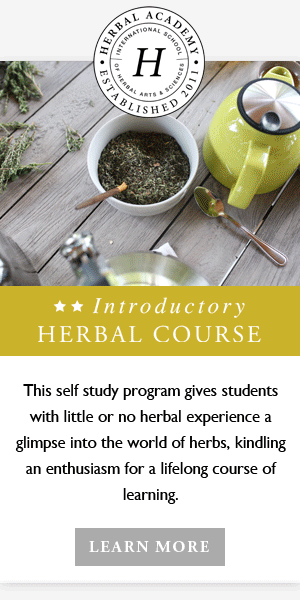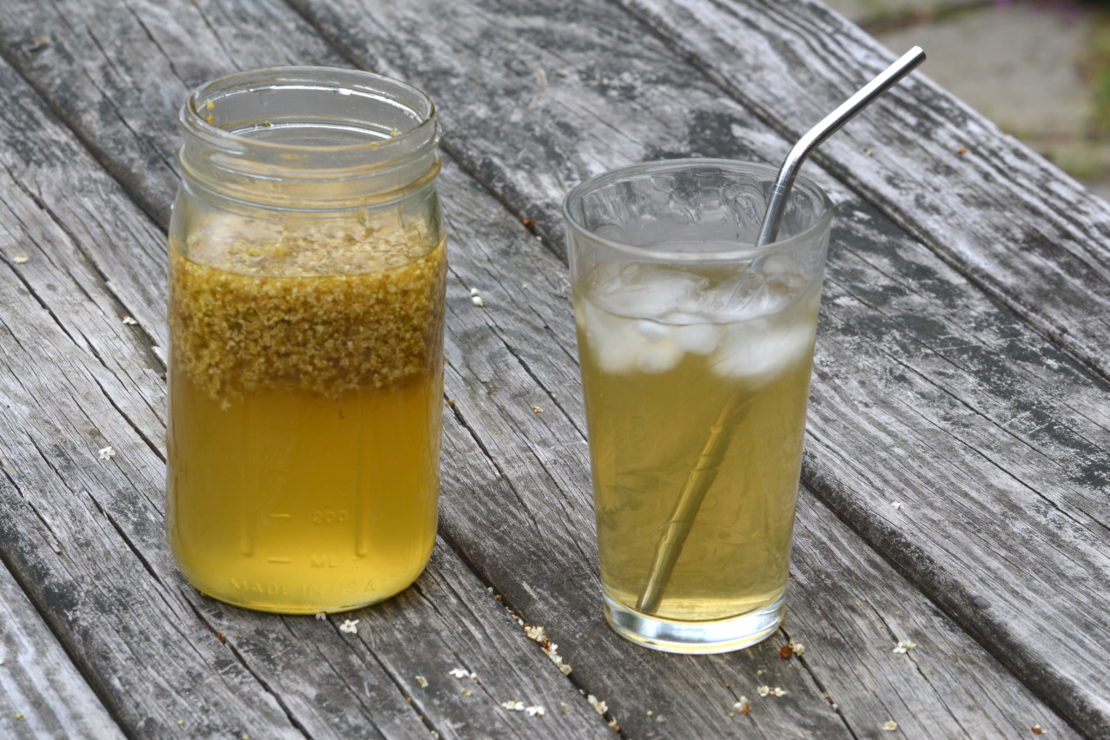
3 Cooling Herbal Teas For Summer
The long, lazy days of summer can be an idyllic respite from the hustle and bustle and routine of the rest of the year—in some ways summer just feels easier. Schedules relax a bit and many of us make more time for play and relaxation. The long hours of daylight invite earlier mornings or late nights, depending on which side of the time zone you are on. And with the plants in their season of growth and fruiting, we sync with the cycle of the year and enjoy fresh, seasonal foods that only last a short time. The essence of summer is equal parts leisurely and fleeting, and the tension between the two makes for a special season.
However, for those of us who thrive in cooler temperatures, summer presents its challenges. Hot, humid weather can exacerbate those of us with a fiery nature and hot constitution. It can make us crabby, whiny, or just plain uncomfortable! And regardless of constitution, when the thermometer hits the high end and humidity hangs in the air, we all seek a little relief. Cooling herbal teas are a great summer ally to help us roll with the heat.
How Herbs Cool
Herbs and foods can be cooling to our bodies for multiple reasons.
- Herbs like cayenne, yarrow, and elderflower are diaphoretics that stimulate sweating, which helps release heat from the body. Think of the spicy foods consumed in warm-weather countries near the equator—that’s no accident!
- Sour herbs and foods such as lemon balm, rose hips, hibiscus, and sour fruits (lemon, lime, blueberry, etc.) have a cooling effect on the body. It’s interesting that different systems of healing view the sour taste differently—in Greek medicine sour is considered cooling, while in Ayurveda it is considered warming; but in normal food quantities, sour can be considered cooling (Wood et al., 2015).
- Astringent herbs like rose petals, raspberry leaf, and black tea are cooling and drying to the body, helping to offset heat and humidity.
- Herbs and foods like watermelon, cucumber, and salads are cooler than the temperature of the body due to their high water content, so in a relative sense they are cooling.
Degrees of Herbal Cooling
Ancient Greek medicine describes the four qualities (heat, cold, dry, damp) in terms of degrees—as in how heating or how cooling a plant or food is, particularly relative to how heat or cold are manifesting in the body.
Cold has four actions: refreshing, cooling, thickening, and anodyne (Wood, 2008). A cooling herb or food in the first degree (lettuce, cucumber, rose hips and petals, lemon, lime) is considered “refreshing” and is ideal for heat that has not settled in the body (Rose, 2012; Wood, 2008)—that is, a heat that is in the environment and is being experienced by the body, like a hot day. A cooling herb or food in the second degree (elderflower, lemon balm, rose hips and petals, yarrow) is called a refrigerant or cooling and is ideal for heat manifesting as inflammation or internal heat (Rose, 2012; Wood, 2008). Third and 4th degree herbs are for more severe manifestations of heat and are considered thickening (e.g., to sweat and diarrhea) and anodyne, respectively (Rose, 2012; Wood, 2008).
Armed with this knowledge, it’s fun to experiment with various cooling herbal drinks that refresh and cool! Below are 3 cooling tea recipes to get you started.
3 Cooling Herbal Teas For Summer
Hibiscus (Hibiscus sabdariffa) is a perennial shrub in subtropical regions with large yellow flowers and dark red sepals that comprise the calyx, which is the outermost whorl of the flower. These luscious, fleshy red sepals are harvested and used fresh or dried. Hibiscus tea is a popular drink in many cultures, often prepared sweetened with cinnamon or other spices. It is called sorrel in the Caribbean, agua de Jamaica in Latin America, karkade in north Africa, Italy, and Russia, and orhul in India (Wikipedia, 2017a; Wikipedia, 2017b). Hibiscus has a sour, slightly astringent taste and is considered cooling.
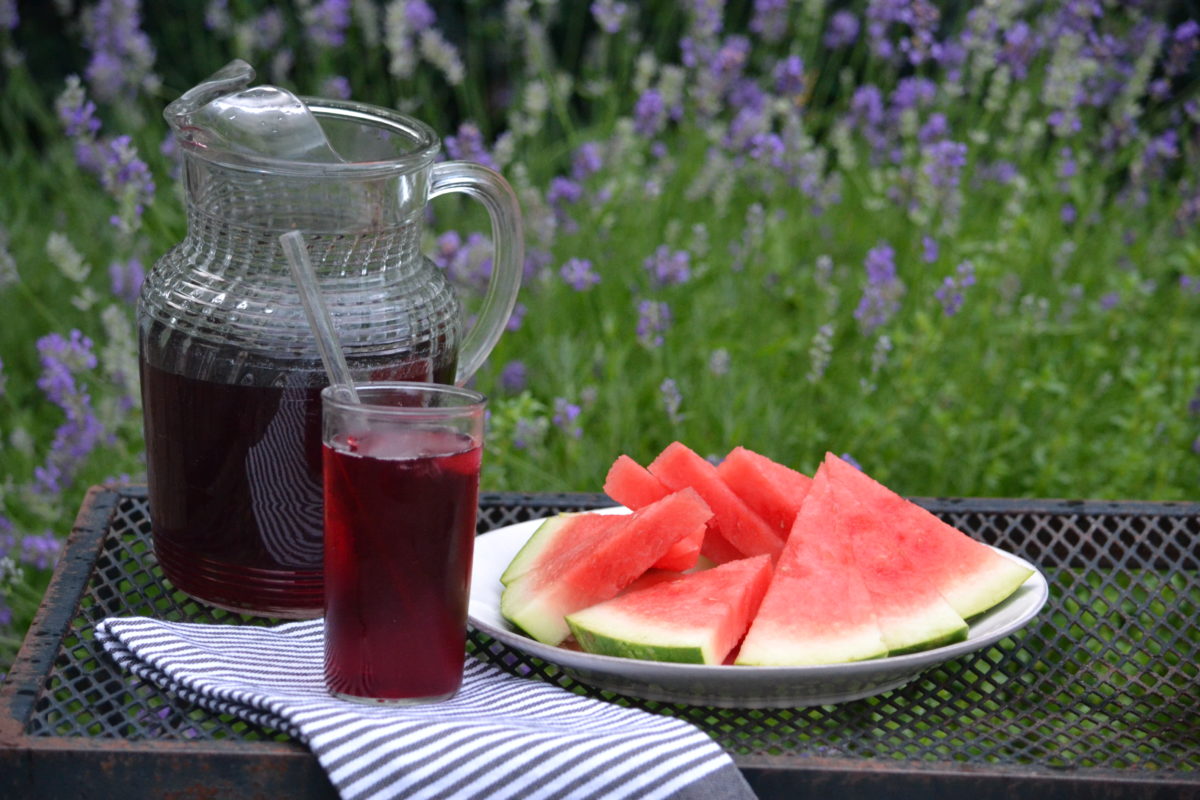
1. Hibiscus Herbal Cooler
Hibiscus tea is delicious on its own, but I like to add chamomile and cinnamon to sweeten it up a bit and rosehips for more sour cooling.
Hibiscus Herbal Cooler
¼ cup dried hibiscus
¼ cup dried chamomile
2 tablespoons dried rosehips
1 tablespoon dried cinnamon chips
Elderflower (Sambucus nigra) helps to cool the body by moving the blood (and thus heat) to the surface of the body where it is released through pores; it is also a diuretic that encourages elimination of excess heat through the kidneys (McIntyre, 2000).
One way to enjoy the cooling effect of elderflower is in a sweetened cordial, which is especially light and refreshing when added to chilled fizzy water. There are as many elderflower cordial recipes in herbal books and online herbal and culinary blogs as the day is long, as it is a very popular recipe in Europe. I particularly like elderflower cordial recipes that contain lemons or limes and citric acid for a nice sour finish.
If you’re looking to whip up something even simpler, here’s a tasty and quick elderflower “ade”.
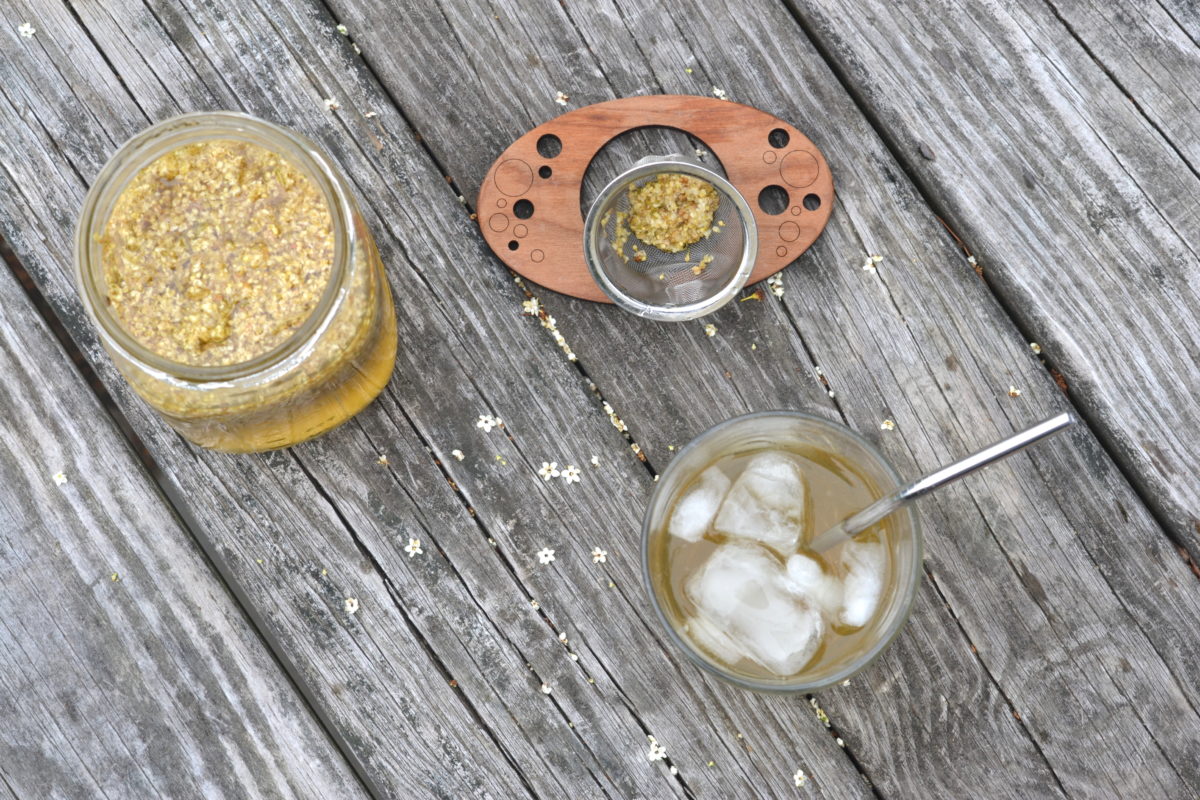
2. Elderflower Lemon Balm ‘Ade’
Elderflower makes a refreshing, slightly sweet floral tea, and is especially tasty combined with citrus flavors such as lemon balm (Melissa officinalis) and a little honey. Lemon or lime slices are a lovely addition, too.
Elderflower Lemon Balm 'Ade'
2 teaspoons dried elderflowers (or 4-5 fresh umbels)
1 teaspoon dried lemon balm (or 2 teaspoons fresh)
1 cup water
Both raspberry leaf (Rubus idaeus) and rose petals (Rosa spp.) are astringent (due to their tannin content), drying, and cooling, and they can be especially helpful for humid conditions. Raspberry leaf is a nutritive herb high in minerals while rose is calming to hot emotional states!
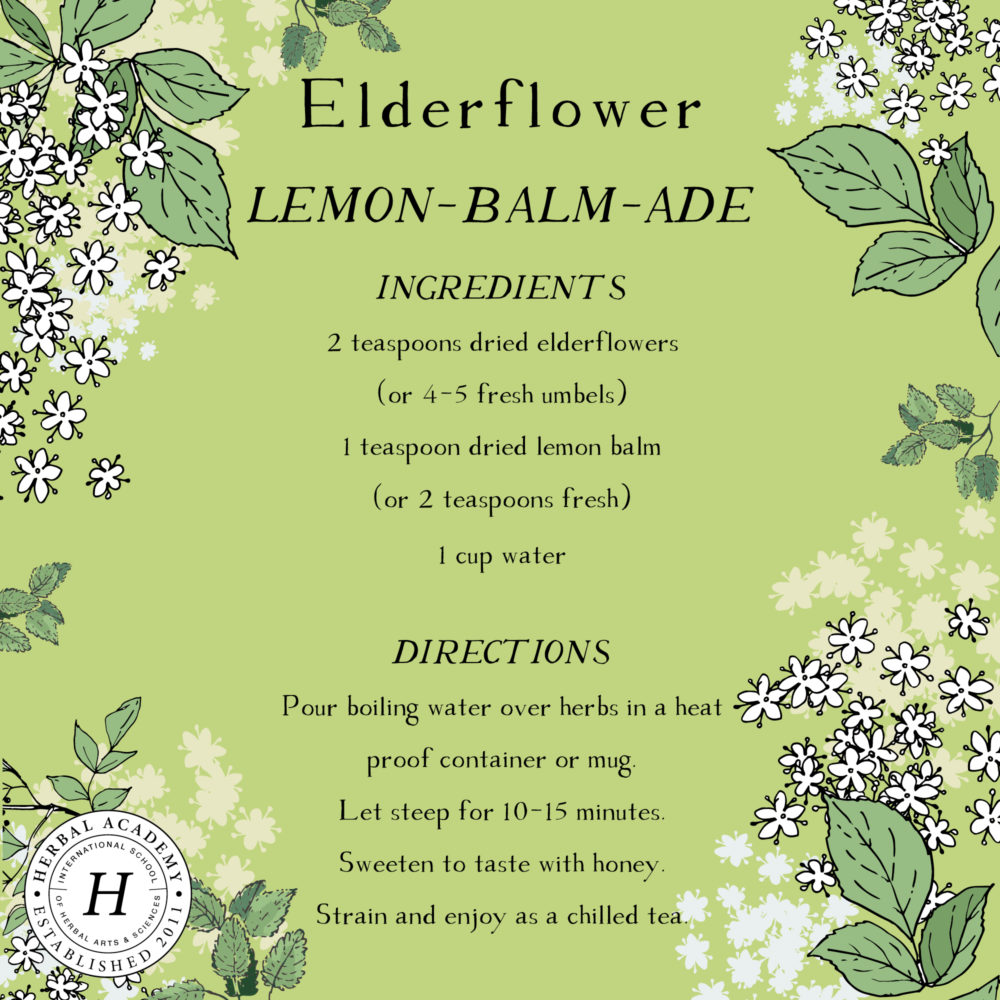
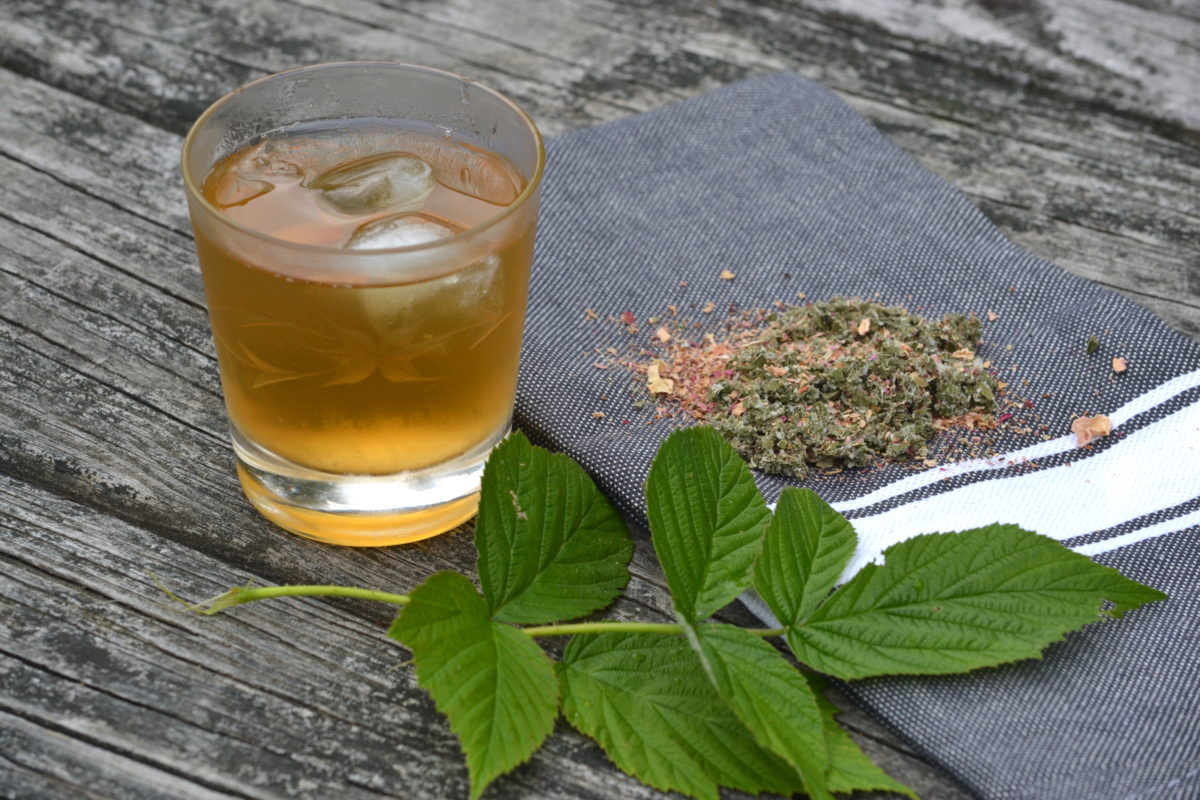
3. Raspberry Rose ‘Iced Tea’
This blend makes a great iced tea substitute, as raspberry leaf tea tastes similar to black tea, while rose adds a nice floral touch.
Raspberry Rose 'Iced Tea'
1-2 teaspoons dried red raspberry leaf
½ – 1 teaspoon dried rose petals
1 cup boiling water
Interested in more ways to beat the heat? Check out How to Stay Cool Using Herbs and Cooling Cucumber-Mint Limeade for Hot Summer Days!
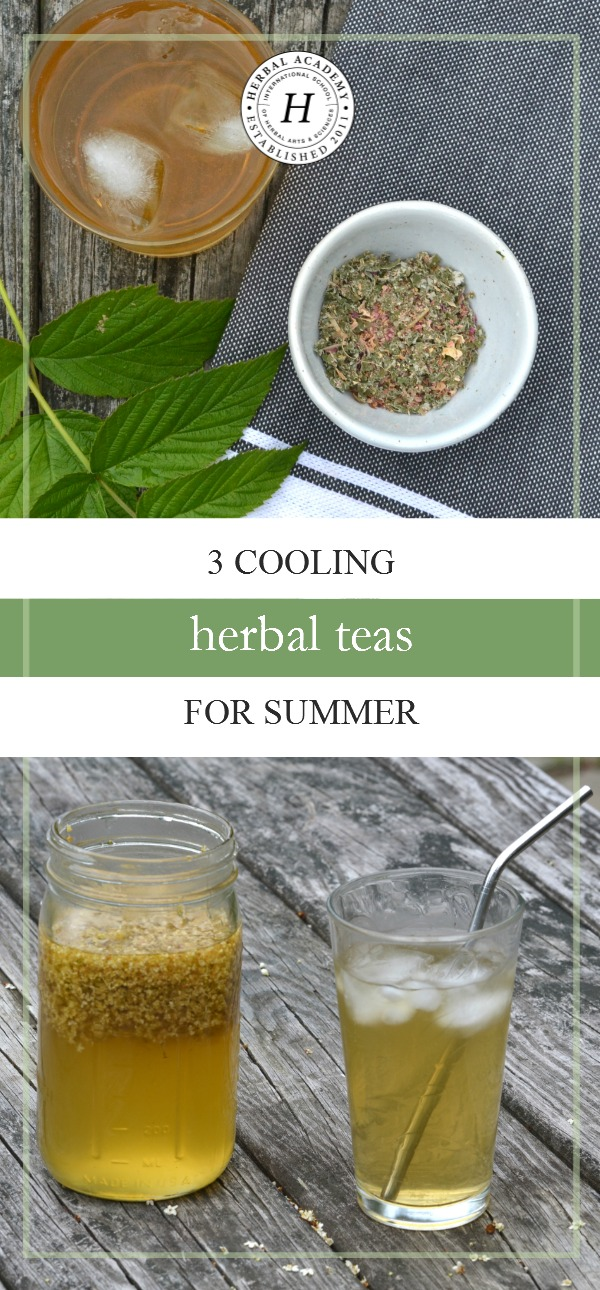
REFERENCES
McIntyre, A. (2000). Drink to your health. New York, New York: Fireside.
Rose, K. (2012). Greek herbal medicine: The four qualities and the four degrees by Matthew Wood. Retrieved from http://bearmedicineherbals.com/greek-herbal-medicine-the-four-qualities-and-the-four-degrees-by-matthew-wood.html
Wikipedia. (2017a). Hibiscus tea. Retrieved from http://en.wikipedia.org/wiki/Hibiscus_tea.
Wikipedia. (2017b). Hibiscus. Retrieved from https://en.wikipedia.org/wiki/Hibiscus
Wood, M. (2008). The earthwise herbal: a complete guide to old world medicinal plants. Berkeley, CA: North Atlantic Books.
Wood, M., Bonaldo, F., Light, P.D. (2015). Traditional western herbalism and pulse evaluation: a conversation. Lulu Publishing Services.

